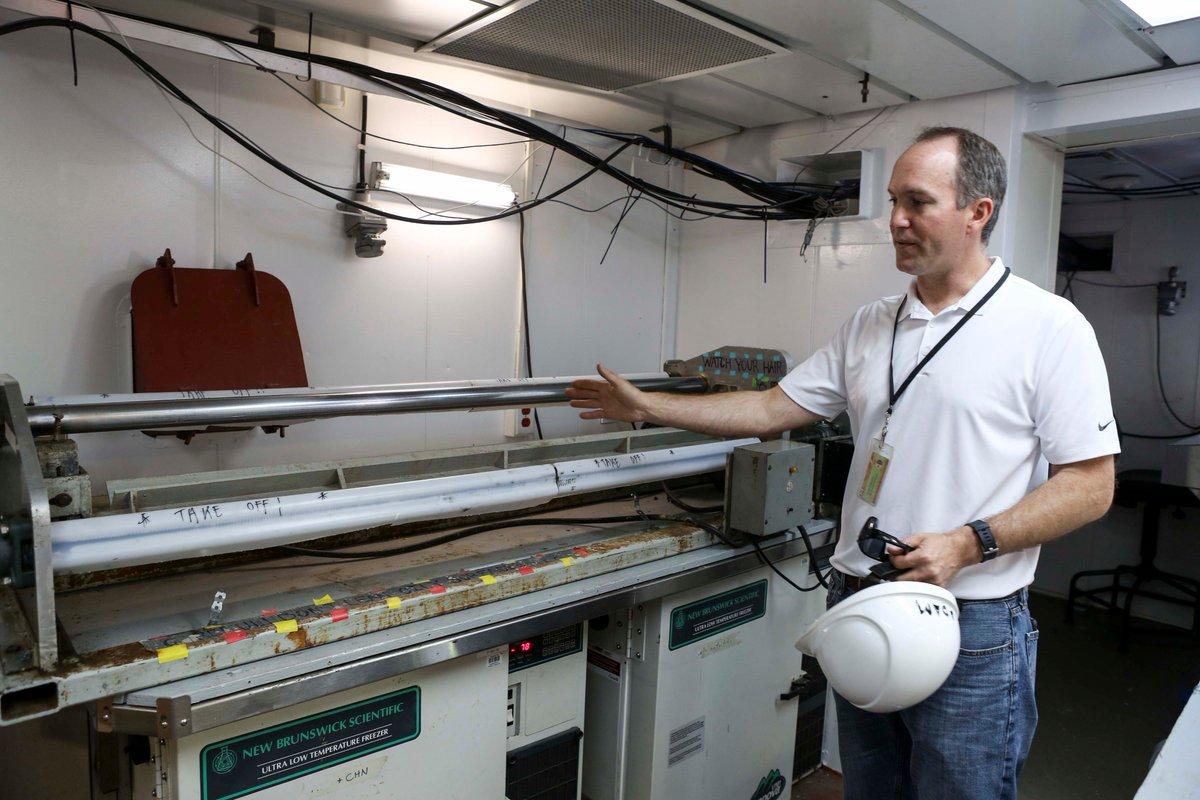A major new initiative that adds genomics technologies to traditional geoscience aims to reduce the risk for oil exploration in Nova Scotia’s offshore.
The $6.5 million project, Validation and Integration of Genomics Solutions for Offshore Oil Exploration in Nova Scotia and Beyond, was announced today by the Honourable Kirsty Duncan, Minister of Science and Sport, as one of 20 projects across Canada awarded through Genome Canada’s Genomic Applications Partnership Program (GAPP). Other major project partners include the Nova Scotia Department of Energy and Mines; the Geological Survey of Canada, Natural Resources Canada; Research Nova Scotia; Nova Scotia Offshore Energy Research Association (OERA); Mitacs Canada; Applied Petroleum Technology (APT); the University of Calgary; and Saint Mary’s University.
The initiative builds on the work of a previous GAPP project in which genomics data and results were compared with petroleum geochemistry data to paint the clearest picture yet of petroleum deposits in areas of Nova Scotia’s offshore. The project announced today, involving the same team, will take that work to the next level by delivering high resolution tools and maps developed with the help of autonomous underwater vehicles (AUVs), advanced ‘omics technologies and machine learning.
“The idea of using genomic (DNA-based) tools to help de-risk offshore oil and gas exploration efforts has transitioned from a ‘what if’ idea not that long ago into a compelling opportunity that has earned the support of this project’s many partners,” said Steve Armstrong, President and CEO of Genome Atlantic. “We are extremely pleased to have the opportunity to work with such a dedicated and talented group committed to establishing Nova Scotia as a leader within this globally competitive sector.”
The Province of Nova Scotia’s commitment to the project is part of its $12 million investment in offshore R&D over the next four years. “For generations, the offshore has paid off for Nova Scotians and it still holds tremendous potential to grow our economy and create jobs across the province, especially in rural areas,” said Nova Scotia Energy and Mines Minister Derek Mombourquette. “By continuing to invest in leading-edge research we will find cleaner and safer ways to look for resources and attract international investment to our shores.”
The project is co-led by Dr. Casey Hubert (University of Calgary), Dr. Todd Ventura (Saint Mary’s University) and Adam MacDonald (NS Department of Energy and Mines) and is managed by Genome Atlantic in partnership with Genome Alberta.
“This new project will allow us to explore sites that preliminary testing revealed as particularly promising, this time using AUV mapping, ROV (Remotely-Operated underwater Vehicle) video-guided sampling, and higher density sediment coring,” said Dr. Hubert. “We will integrate a broader slate of ‘omics technologies, including rapid DNA sequencing using hand-held devices that will enable genomics to guide daily sampling decisions on the ship out at sea. This work will combine various cutting-edge technologies to map petroleum potential while simultaneously generating environmental baseline data on seabed biodiversity.”
“This GAPP is expanding on the microbiological toolkit with the addition of lipidomics,” said Dr. Todd Ventura, Saint Mary’s University. “This allows us, for the first time, to detect ancient, deep water seeps that, while no longer active or infrequently active, nevertheless paint a more comprehensive picture of a dynamic petroleum system. Additionally, speed is everything – and with the development of a lab on a ship and AI-based data mining, we hope to greatly improve the turnaround time between sample acquisition, processing and data analysis – all of which will help exploration companies in their decisions.”
“De-risking our offshore for exploration is critical for Nova Scotia to remain competitive in a global market,” said Adam MacDonald, NS Department of Energy and Mines. “Adding new tools and building innovative and integrated projects such as this collaboration with the University of Calgary and Saint Mary’s University gains recognition and attention to our quality and capacity to compete. Not only do we de-risk exploration but this project provides environmental baseline information on the benthic life and communities that may be dependent on natural occurrences of hydrocarbon on the seafloor.”
“The advanced sampling and seafloor profiling techniques being used in the project will deliver rapid, high resolution tools and maps to reduce offshore exploration risk,” said Alisdair McLean, Executive Director of OERA. “The hope is to engage local companies with advanced technologies, which will build business opportunities in a global industry.”
Genome Atlantic is a not-for-profit corporation with a mission to help Atlantic Canada reap the economic and social benefits of genomics technologies. Since its inception in 2000, the corporation has worked with a range of private and public-sector partners to enable more than $100 million in new genomics R&D. Please visit genomeatlantic.ca for more information.
Genome Alberta is a publicly funded not-for profit corporation which invests primarily in large-scale genome sciences research projects and technology platforms focused on areas of strategic importance to the province including, forestry, plant and animal agriculture, energy, environment, and human health. To date, the organization has managed a research portfolio with approved budgets of over $228 million. Please visit GenomeAlberta.ca for more information.
-30-
Media Contact: Charmaine Gaudet, 902-488-7837,cgaudet@genomeatlantic.ca
http://genomeatlantic.ca/omics-project-takes-de-risking-nss-offshore-to-next-phase/

